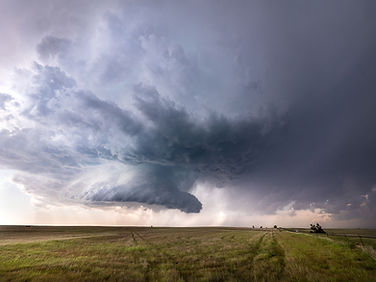Stories from the Field
Examples of recent coalition response activities

Winter Weather
Extreme temperatures for several days including rolling brownouts across the state in December 2022.
-
Monitor all affected healthcare facilities and assist EMA in notifying of brownouts to critical healthcare facilities.
-
Monitor and respond as necessary to hospital diversionary status during repairs.
-
Intercoalition coordination: assisted and provided bed availability for nursing home evacuation in neighboring region
National Disaster Medical System Exercise

Biennial exercise: Federal patient movement coordinated between Department of Health and Human Services (HHS), Department of Homeland Security (DHS), the Department of Veterans Affairs (VA), and Department of Defense (DoD). Local response managed by coalition and state partners.
-
Triage all incoming evacuees
-
Coordinate with EMS for transport and assignment to hospitals based on needs
-
Patient track all evacuees and non-medical attendees escorting evacuees for reunification.
-
Coordinate with local hospitals to implement surge processes if necessary.
-
Ensure all patient information and assignments are synchronized between state and federal partners.

Annual NASCAR Races
Every June, TNHRHCC Partners with Vanderbilt LifeFlight to provide medical shelters and patient tracking functionality
-
Provide and maintain multiple medical tents for patient care
-
Patient track all infield and main medical patients for NASCAR and Vanderbilt
-
Coordinate with Regional Medical Communications Center for patient transport
-
On standby in event of a mass casualty incident
Waverly Flood
On August 21, 2021, 20.73” of rain fell in McEwen, Tennessee causing an unexpected flash flood to Humphreys County. The U.S. Army Corps of Engineers rated the flood as greater than 3800-year flood prediction. Forty-nine million gallons of water traveled through a rural town of less than 5000 residents knocking out power, water, communications, and all but one major thoroughfare in and out of the community.

-
Provided communications to hospitals, long-term care facilities, and shelters
-
Assist in fatality management with deployable assets and personnel
-
Coordinated shelter response with public health, durable medical equipment providers, pharmacists, and National Guard
-
Deployed restroom trailers and generators to hospital and nursing homes.
-
Provided generator to local health department to set up external vaccination site.
-
Provided on-site support services to the community during deployment.
-
Assisted long-term care facilities with any immediate needs.

Christmas Day Bombing
At 6:30 am on December 25, 2020, an explosion occurred in downtown Nashville. Communications systems throughout the area were disrupted, including 911 services, widespread cell phone service outages, and a loss of communication to air towers, which temporarily grounded flights at Nashville International Airport.
-
Assess hospital status for possible surge.
-
Assisted with patient transfers from EMS to hospitals while 911 was down.
-
Collected and reported out backup communication measures for hospitals, EMS, and EMAs.
-
Prepped redundant communications for deployment.
-
Provided information-sharing and situational awareness updates to coalition members.
-
Surveyed all coalition members throughout the incident and updated Verizon, AT&T and state partners on communication status of facilities located within the coalition.
COVID-19 Response
Global pandemic 2020-2023

-
Provide situational awareness to hospitals and other facilities.
-
Monitor COVID-19 cases and clusters within the region.
-
Provide testing and education to healthcare facilities.
-
Provide testing supplies to first responders and facilities.
-
Coordinate logistics for ventilators in hospitals.
-
Deploy assets for fatality management.
-
Assist EMS and hospitals with evacuation of long-term care facilities.
-
Provide and maintain multiple medical tents for monoclonal antibody therapies.
-
Provide logistical support for personal protective equipment (PPE) for healthcare facilities and first responders.

March 2020 Tornadoes
Beginning on March 2, 2020 and continuing into March 3, 2020, tornadoes moved through
central Tennessee. There were 7 confirmed tornadoes including an EF-3 tornado in Nashville that built up to an EF-4 before hitting another region.
-
Provided training and exercise prior to the event which helped healthcare facilities remain operational during the disaster.
-
Surveyed all healthcare facilities located in the damage path to determine facility status and any needs they may have had.
-
Deployed assets to neighboring regions to assist first responders immediately following the tornado.
-
Maintain situational awareness through conference calls for coalition members and partners.
